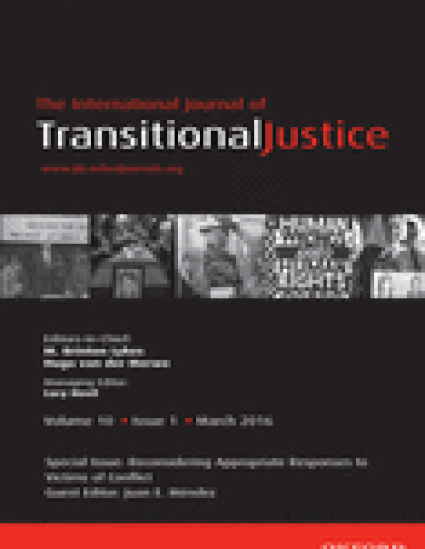
Article
The Impact of Lustration on Democratization in Post-Communist Countries
International Journal of Transitional Justice
(2014)
Abstract
Assumptions about the democracy-promoting qualities of transitional justice measures abound. However, the relatively few cross-national impact assessments thus far have yielded mixed results. This article takes up this empirical question with respect to postcommunist transitions. I construct an original lustration typology to differentiate the quality and scope of the reforms across 12 countries in the postcommunist space. I then explore whether and how lustration policies have affected democratization. First, the article demonstrates a robust relationship between lustration policies and democracy. In particular, programs requiring compulsory and slightly punitive employment changes evidence stronger relationships with overall levels of democracy than programs relying on symbolic, moral cleansing changes. Second, the article shows that the magnitude of the relationship is substantial. Extensive lustration programs are associated with 30 percent higher levels of democracy over time, even controlling for macroeconomic and political factors at the country level. While all types of lustration are positively associated with changes in democracy, the quality and scope of lustration also affects overall levels of democratization.
Keywords
- Impact assessment,
- Lustration,
- Vetting,
- Democratization,
- Communism,
- Soviet bloc
Disciplines
Publication Date
2014
Publisher Statement
Copyright © 2015 Oxford University Press IJTJ (2014) 8 (3): 496-521. DOI: 10.1093/ijtj/iju011
Citation Information
Cynthia Horne. "The Impact of Lustration on Democratization in Post-Communist Countries" International Journal of Transitional Justice Vol. 8 Iss. 3 (2014) Available at: http://works.bepress.com/cynthia_horne/5/
